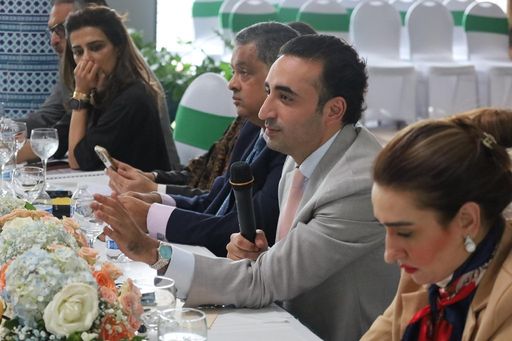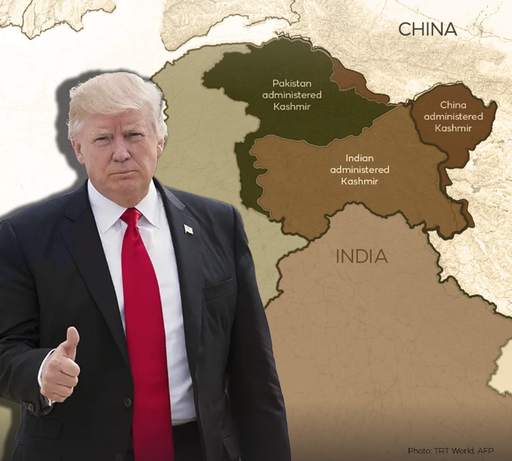The chief of US Central Command (CENTCOM) has stressed that his country needs to have a relationship with both Pakistan and India, lauding the role of the Pakistani military in countering the threat from Daesh in the region and stressing that America's relationship with New Delhi cannot cost ties with Islamabad.
"We have to have a relationship with Pakistan and with India. I do not believe it is a binary switch that we can't have one with Pakistan if we have a relationship with India," General Michael Kurilla said on Tuesday.
"We should look at the merits of the relationship for the positives that it has."
Kurilla made the comments during a testimony before the US House Armed Services Committee.
Pakistan is "in an active counterterrorism fight right now and they have been a phenomenal partner in the counterterrorism world," the top American general added, referring to Islamabad's counter-terrorism operations in the region.
"ISIS Khorasan (ISIS-K or Daesh in Khorasan) is perhaps one of the most active in trying to do external plots globally to include against the homeland. The Taliban is going after ISIS K — they hate each other, and have pushed a lot of them into the tribal areas on the Afghan-Pakistan border," Kurilla said at the full Committee Hearing on 'US Military Posture and National Security Challenges AFRICOM + CENTCOM.'
Kabul bombing
"Through a phenomenal partnership with Pakistan, they have gone after ISIS Khorasan, killing dozens of them. Through a relationship we have with them providing intelligence, they have captured at least five ISIS Khorasan high value individuals."
Kurilla said Pakistan extradited Daesh group's Mohammad Sharifullah, also known as Jafar, to face charges for his role in the August 26, 2021 Kabul airport bombing.
In March, Pakistani intelligence officers stated that they arrested Sharifullah in the country's restive southwest Balochistan province, near the border with Afghanistan, after multiple operations had previously failed to capture him.
Sharifullah is charged in federal court in Virginia state with providing material support to a foreign terrorist organisation, resulting in deaths.
The Abbey Gate bombing, in the waning days of an airlift for those fleeing the Taliban takeover of the country amid the withdrawal by US forces, occurred in August 2021 when a suicide bomber attacked crowds of Afghans flocking to Kabul's airport.
Besides 13 US service members, about 170 Afghans were also killed in the attack, which triggered widespread congressional criticism and undermined public confidence in the Biden administration's handling of the conclusion of the war.

During his testimony, General Kurilla added that he was the first person Pakistan's then Chief of Army Staff Asim Munir had called and had said: "I've caught him. I'm willing to extradite him back to the United States. Please tell the Secretary of Defence and the President'."
"So we are seeing Pakistan, with limited intelligence that we're providing them, go after them, using their means to do that, and we're seeing an effect on ISIS-K," he said.
"The ISIS-K terrorists are continuing to move around and sometimes they'll try and go back into Afghanistan… for the most part right now, they're hanging out right in that border area of Pakistan," he added.
US role in Pakistan-India truce
Also on Tuesday, the US administration reiterated that President Donald Trump remains open to playing a mediating role in the decades-long conflict between India and Pakistan over Kashmir, framing such an initiative as part of his broader commitment to resolving long-standing international disputes.
During a press briefing, State Department Spokesperson Tammy Bruce said that "we all recognise that President Trump in each step that he takes, it’s made to solve generational differences between countries, generational war," suggesting that it would not be surprising if Trump chose to remain engaged with the issue.
India and Pakistan saw one of the worst hostilities early this month, sparked by an April 22 attack in India-administered Kashmir, where unidentified gunmen killed 26 people, mostly Indian tourists, at the Pahalgam tourist site.
A shadowy group called The Resistance Front purportedly claimed responsibility, according to an unverified claim quoted by some Indian media outlets. Later, the group withdrew its claims as per media reports.
New Delhi, which has deployed more than 500,000 troops in the tiny and disputed Himalayan region, swiftly blamed Islamabad for the attack without probe or providing any evidence publicly.
Islamabad declared it a "false flag" operation and suggested an impartial investigation, which New Delhi dismissed.

South Asia tensions
Tensions spiked when India launched missile and drone attacks on Pakistan and Pakistan-administered Kashmir, that Islamabad says killed dozens of civilians. Islamabad launched counter missile and drone strikes, targeting Indian military bases in several areas in India and India-administered Kashmir.
Pakistan stated it downed six Indian aircraft, Rafale jets included.
After weeks of denial, General Anil Chauhan, India's chief of defence staff, admitted that an unspecified number of its warplanes were shot down by Pakistan during May dogfights.
Tensions eased after US President Trump announced a May 10 ceasefire, which remains in effect.
New Delhi rejects Trump's role in ceasefire and says it has only suspended the fighting, while Islamabad hails Trump and his State Department officials for stopping a fight that both US and Pakistani leaders say could have turned into a nuclear conflict.















